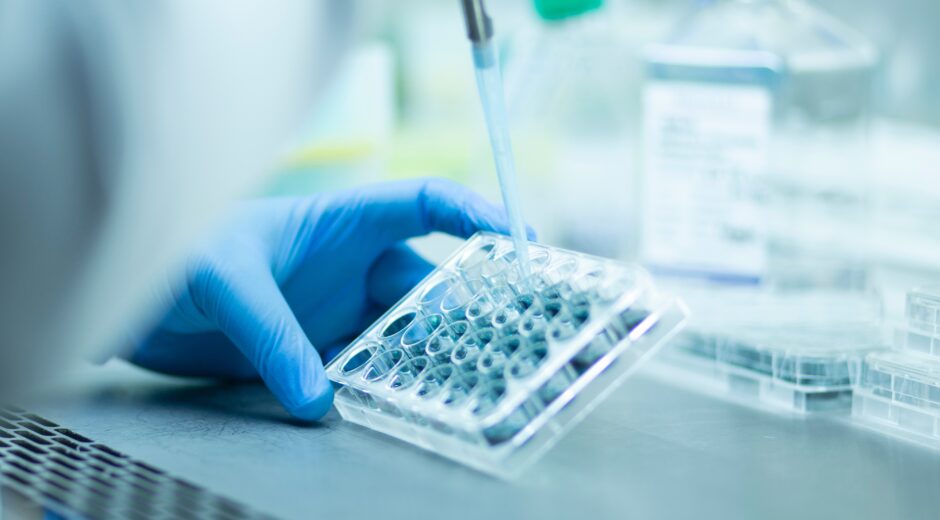Page content
Department of Pharmacology and Toxicology
Secretary:
Michaela Kunstmüllerová
377 593 240
Michaela.Kunstmullerova@lfp.cuni.cz
Department staff >

The department is located in the new building of the University Medical Center, together with other preclinical disciplines, in close proximity to the Pilsen – Lochotín Faculty Hospital. The head of the Department of Pharmacology and Toxicology is prof. PharmDr. Radek Kučera, Ph.D.
History
The Institute of Pharmacology was established shortly after the founding of the Faculty of Medicine in 1945. Initially, it was located in four rooms of the now-abandoned Fodermayer Pavilion in Pilsen – Doudlevce. The institute was relocated several times in its first years and finally moved to the premises of Procháska’s building. It housed Pilsen’s pharmacology until 2014, when it moved with all its facilities to the new building of the University Medical Center – its current location
Consulting hours
prof. PharmDr, Radek Kučera, Ph.D.
PharmDr. Eva Dědečková
MUDr. Michal Jirásko
by agreement
Post address:
Faculty of Medicine in Pilsen, Charles University
Department of Pharmacology and Toxicology
alej Svobody 1655/76, building U2, 323 00 Pilsen
General Information
Education
The Institute of Pharmacology and Toxicology provides Pharmacology courses in the second and third year of Master‘s study programme of general medicine and in the third year of Master’s study programme of dental medicine. Compulsory and optional courses are taught in Czech and in English.
Academic staff of our department has pharmaceutical or medical degree. Furthermore, the Institute collaborates with specialists from individual clinical fields, thus gaining an extra edge in creating complex education aimed towards the most recent trends in pharmacotherapy.
Pharmacology
Pharmacology is a preclinical subject, in which students acquire knowledge of basic principles of pharmacodynamics, pharmacokinetics, and mechanism of action of individual drugs.
Rational pharmacotherapy taught during seminars focuses on suitable individual drug choice for each patient and avoiding drug interaction or adverse effects. Students also get familiar with the fundamentals of drug prescription in a theoretical and in practical way.
Schedule
For the dental medicine programme, Pharmacology is taught in the winter semester of the 3rd year, completed by credit test. Education continues in the summer semester of the 3rd year, awarded by 5 credits and finished by exam.
Research
The Department of Pharmacology is accompanied by a rich history of scientific research. Over the years, attention was focused on chelating agents, oxidative stress, and the effects of substances of plant origin on the immune system. Current research topics of the Institute of Pharmacology and Toxicology are mainly focused on pathophysiological processes in Alzheimer’s disease, the influence of pharmacotherapy of benign and malignant prostate diseases on the diagnostic methods, and vitamin D deficiency and its solution in certain diseases.
With its scientific and research approach, the Institute now moves on the border between preclinical and clinical medicine.
Identification of changes in glutamatergic pathways specific for sporadic form of Alzheimer’s disease in human neurons and astrocytes induced from patients‘ cells
Alzheimer’s disease is a neurodegenerative disorder causing 60 – 70 % of cases of dementia. The cause of Alzheimer’s disease is poorly understood and there is still much to be discovered in its pathophysiological processes. The main objective of the project is to understand the cellular pathology of astrocytes in the context of human Alzheimer’s disease which remains highly enigmatic – due to the severe limitations of animal models.
The aim of this project is to identify the changes in glutamatergic pathways and Ca2+ signalling specific to Alzheimer’s disease in human astrocytes. The astrocytes are induced from fibroblast explant culture obtained by skin punch biopsy from patients with confirmed sporadic Alzheimer’s disease. The outcome of the project will show the impairment of astrocyte electrophysiological properties involved in Alzheimer’s disease and may contribute to improving strategies for its treatment.
The workplace is materially equipped to monitor pharmacokinetic parameters (analytical methods HPLC, AAS), and biochemical analyses of oxidative damage (spectrometry). In the new UNIMEC building, we have created spaces for working with cell lines and for molecular methods (PCR, Western blotting).
